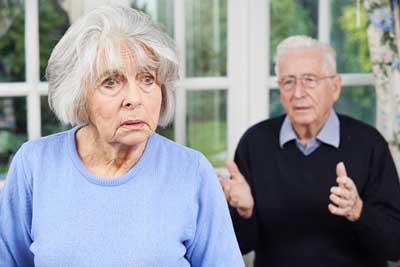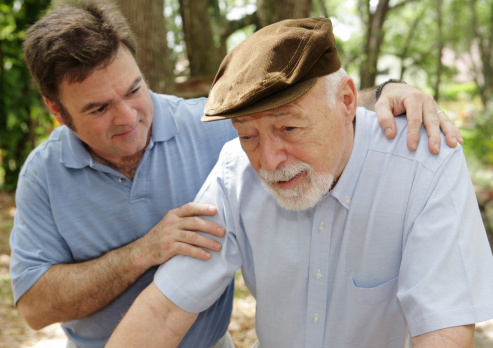If your caregiving duties become extra challenging in the late afternoon, you're not alone. In fact, many people with dementia and Alzheimer's experience dramatic changes in behavior during this time of day resulting in increased demands upon caregivers. The phenomenon -- thought to be brought on by fading light -- is so common that it's earned its own name: sundowning. Let's take a closer look at sundowner's syndrome, as well as tips and tricks for managing the condition.
 About Sundowning
About Sundowning
Scientists aren't sure why sundowning happens, but believe that the internal body clocks of people with dementia may be unable to accept waking and sleeping signals. Other triggers may include fatigue, hunger or thirst, depression, pain or boredom.
People who are sundowning may exhibit a number of difficult behaviors, including anxiety, confusion, ignoring directions, pacing, wandering, and aggression. They may also struggle with separating dreams from reality.
While there is limited data about sundown syndrome, research suggests that as many as 25 percent of patients with Alzheimer's disease may have sundown syndrome, which is considered to be the second most prevalent type of disruptive behavior among institutionalized dementia patients. Meanwhile, research published in the Journal of the American Geriatric Society indicates that as many as 66 percent of people living at home may exhibit sundowning.
Tips for Managing Sundowning
Maintaining a routine can be an effective part of managing sundowning. From bedtime and waking to meals and activities, establishing and sticking to a schedule is a helpful technique. Arranging activities, limiting sugar and caffeine intake in the afternoon, and cutting out daytime naps can further minimize symptoms.
If impending darkness seems to exacerbate your aging loved one's symptoms, try using a nightlight. Additionally, limiting background noise and avoiding stimulating activities -- including technology, such as television and computer use -- can also help reduce agitation. Meanwhile, gentle music or relaxing nature sounds can help promote a sense of comfort.
Being in an unfamiliar location can lead to worsening symptoms, so bring along familiar comfort items if you are traveling -- such as a cherished photograph or favorite blanket.
Additionally, daytime activities can help promote more restful evenings.
 Clinical Intervention
Clinical Intervention
Consult with a physician - they can offer valuable partnership in managing sundowning. In some cases, an underlying condition may be triggering increasing symptoms. Ask your doctor about sleep apnea, urinary tract infection, and other potential causes.
Additionally, as melatonin -- a hormone which helps control sleep and wake cycles -- has been shown to decrease with age, melatonin supplements can offer some relief when it comes to restoring the body's natural circadian rhythms and regulating behavior. Ask your loved one's healthcare provider about whether melatonin might be an appropriate treatment.
Unfortunately, sundowner's syndrome can add to the challenges of caregiving. However, understanding the condition and taking steps to alleviate symptoms can lighten your load while improving the quality of life of your aging loved one. For more information on caring for a person with sundowning, including coping strategies, read our online guide to sundowning syndrome.
mmlearn.org offers a large library of free videos for caregivers of older adults, covering topics pertaining to senior care. Whether you are a healthcare professional or a family caregiver, if you are caring for an older adult we know that you will find mmLearn.org an essential learning and guidance tool for all of your caregiver training needs.

